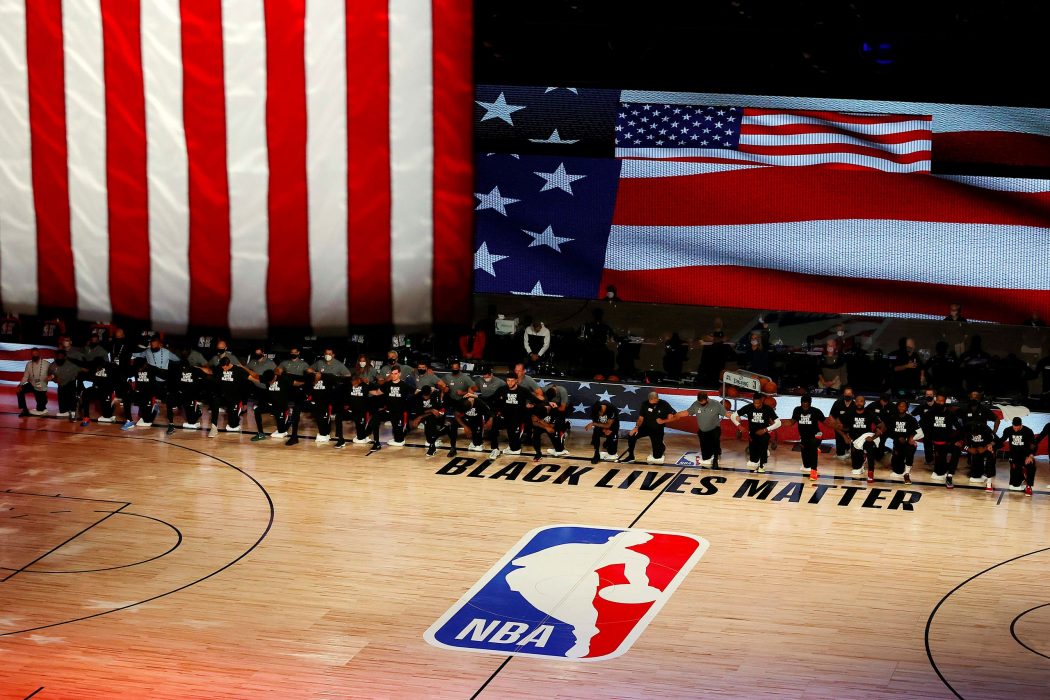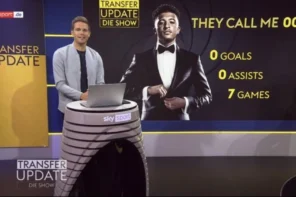On August 26, 2020, we witnessed a historic moment in sports and pop culture, the likes of which were previously unseen. After the shooting of Jacob Blake in Kenosha, Wisconsin at the hands of law enforcement and following a summer marked by widespread protests internationally against police brutality and systemic racism, the NBA fully committed to a response. That afternoon, the Milwaukee Bucks elected not to participate in their 4:00 Game 5 against the Orlando Magic, quickly leading to 2 full days of playoff games being postponed by the Player’s Association. This was an unprecedented level of outspokenness from an American Major Sports league to cancel highly lucrative playoff games and lose out on enormous revenue in order to clearly and succinctly take a stance in the matter. The decision sent shockwaves through the sports world, prompting many other athletes across professions to take up and join in similar protest actions. Additionally, some NHL players also boycotted playoff games, several NFL teams cancelled their practices, and the MLB and MLS also allowed game postponements, bringing the conversation right into the homes of millions, not only in America, but globally.
The incredible legacy of sports, particularly at the professional level, as a vehicle for social change is one of hundreds of athletes across many sports choosing to use their platforms at the risk of their careers. Though many may wish the two would remain separate, sports and politics have always found themselves enjoined through these efforts. An infamous example occurred during the 1968 Olympics, in which 200 Meter Dash Gold and Bronze winners Tommie Smith and John Carlos shocked the world by raising a Black Power salute. Rather than adopt the silent and gracious acceptance we have come to expect and feel entitled to from Olympians, they chose to use the moment to display something truer to their feelings of disaffect and neglect from the nation proud to display their achievements but not treat them fairly. It was a globally resonant cry for justice that held profound consequences for both men, who were never invited to compete in the Olympics again.
Smith and Carlos are one of many examples of athletes being martyred for taking up political stances during competition, while suffering immense consequences for their careers. In 2014, San Francisco 49ers Quarterback Colin Kaepernick chose to protest racial injustice by sitting on the bench during the national anthem ceremony before games. After correspondence with Nate Boyer, a supportive but concerned former Green Beret, Kaepernick elected to instead kneel during the anthem in order to show respect while still protesting. While Kaepernick was shown a lot of support and solidarity from many of his teammates and fellow players, the backlash he received from media attention was equally massive. Kaepernick became the talk of nationally syndicated late-night shows and political commentators alike, drawing ire from those who felt his actions were more self-serving than activistic. One of Kaepernick’s most notable detractors was then-presidential candidate Donald Trump, who said that those who don’t respect the flag and anthem should “leave the country”, and later that NFL owners should “get that son of a bitch off the field” when referring to similar protests he inspired. After finishing a losing season with the 49ers, Kaepernick’s contract was restructured to make him a free agent that summer. Despite working out and interviewing extensively for several teams, such as the Seattle Seahawks and Baltimore Ravens, that were glad to attract media attention for working him out, Kaepernick remains yet signed in the NFL almost five years later.
While several athletes have been blackballed or demonized for similar reasons, their activism is quickly becoming more publicly accepted and backed
While several athletes have been blackballed or demonized for similar reasons, their activism is quickly becoming more publicly accepted and backed. The increasing unionization of sports leagues and their protection of player rights has created an increasingly inviting platform for greater expressions of peaceful demonstration. Social media has played an important role as well, giving players an easy means for public communication of their intentions. The Jacob Blake-inspired boycott of the NBA was done only after the NBA had made a point of creating several commercials and segments outlining the effects of systemic racism in America at the behest of the Player’s Association. WNBA superstar Maya Moore was allowed to take a sabbatical in early 2019 in order to focus her efforts and resources solely towards helping get her now-husband, Jonathan Irons, acquitted after nearly 20 years in prison on faulty evidence. The Atlanta Dream, the WNBA team owned by-then Georgia Senator Kelly Loeffler, elected to publicly show support for her opponent in the runoff elections, radical liberal Raphael Warnock. While these actions have consistently been met with vitriolic backlash, they are beginning to finally be met with an equal and appropriate response of tolerance and support. Gone are the days where athletes are asked to “shut up and dribble.” Rather, athletes are met with encouragement when choosing to stand up for what they believe in and, in many ways, even push the conversation forward.








